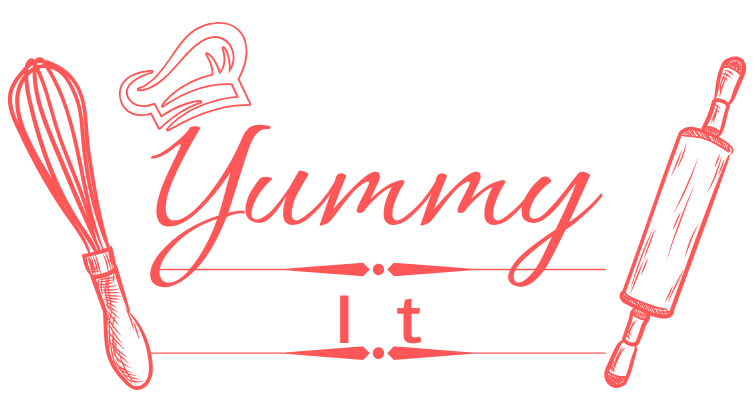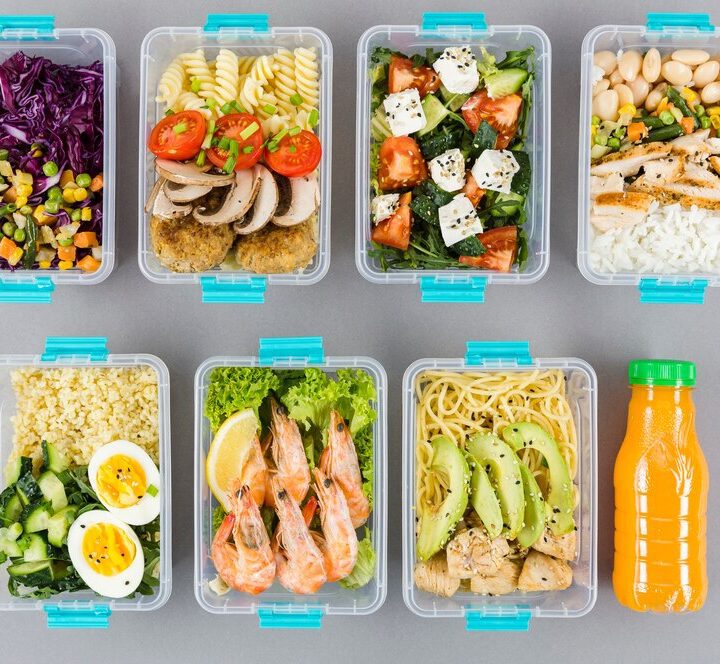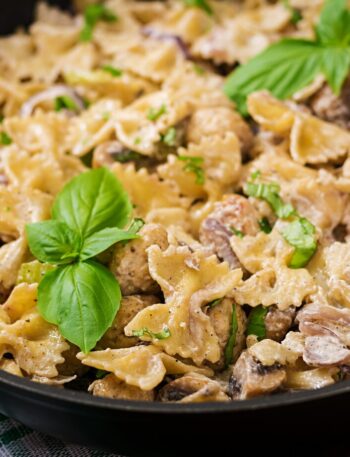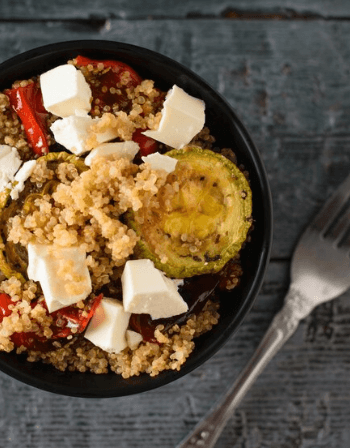Meal prep recipes are a game-changer for anyone looking to save time, eat healthier, and reduce food waste. Whether you’re planning meals for the week or just looking to simplify your daily routine, having a solid meal prep strategy can make a significant difference. According to Harvard T.H. Chan School of Public Health, meal planning helps ensure balanced nutrition and portion control.
With meal prep, you can enjoy home-cooked meals without the stress of daily cooking. Additionally, implementing efficient meal planning methods, as suggested by MyPlate.gov, can help you stay on budget while maintaining a nutritious diet. For those seeking quick and nutritious midday options, explore our Lunch Ideas Easy Quick: Healthy, Fast Meals to complement your meal prep routine.
Benefits of Meal Prep Recipes
Meal prepping offers a wide range of benefits that cater to busy individuals, fitness enthusiasts, and anyone who wants to lead a healthier lifestyle. By planning and preparing meals in advance, you can enjoy nutritious, delicious food without the daily hassle of cooking from scratch. Whether your goal is to improve your diet, save time, or stick to a budget, meal prepping provides a structured approach to achieving these objectives.
Time Efficiency
- Reduces the need for daily cooking. Preparing meals ahead of time means you only cook once or twice a week, significantly cutting down the time spent in the kitchen.
- Streamlines grocery shopping. With a well-thought-out meal plan, you can create a shopping list that helps you avoid unnecessary purchases and frequent trips to the store.
- Enhances productivity. Having meals ready allows you to focus on work, fitness, and family without the distraction of meal decisions.
Cost Savings: Meal Prep Recipes
- Helps buy ingredients in bulk. Purchasing staple items like grains, proteins, and vegetables in larger quantities often results in significant savings.
- Minimizes food waste by using all ingredients efficiently. Proper planning ensures that perishable items are used before they spoil, reducing waste and saving money.
- Prevents impulse spending. Sticking to a planned menu helps you avoid the temptation of ordering takeout or buying expensive pre-made meals.
Health Advantages
- Provides control over ingredients. Cooking your own meals ensures that you avoid unhealthy additives, excessive salt, and preservatives found in store-bought meals.
- Assists in portion control and balanced nutrition. Meal prep allows you to measure your portions accurately, helping with weight management and ensuring balanced intake of proteins, carbs, and fats.
- Encourages healthier eating habits. With healthy meals readily available, you’re less likely to reach for processed or unhealthy options.
Stress Reduction
- Eliminates the need to think about meals daily. With meals prepped in advance, you no longer have to worry about what to cook each day.
- Ensures that ready-to-eat meals are always available. This makes it easier to stick to a healthy diet and reduces the temptation of unhealthy convenience foods.
- Improves work-life balance. Meal prepping frees up time for other important activities, helping you maintain a healthier work-life balance.
Getting Started with Meal Prep Recipes
Starting with meal prep requires planning and organization. Follow these simple steps to get started:
1. Assess Your Dietary Needs and Goals
Understanding your dietary preferences and nutritional requirements is the first step in effective meal prep. Whether you’re aiming for weight loss, muscle gain, or general well-being, plan your meals accordingly. For those adhering to a gluten-free diet, our Gluten-Free Lunch Recipes: Delicious and Healthy provide meal prep ideas that are both satisfying and safe.
2. Plan Your Weekly Menu: Meal Prep Recipes
Select recipes that are easy to prepare and offer a balance of nutrients. Opt for whole grains, lean proteins, and fresh vegetables to create well-rounded meals. Consider incorporating seasonal produce to add variety and freshness to your meals.
3. Create a Shopping List
Make a detailed shopping list based on your planned meals. Organizing items by category can save time and help avoid unnecessary purchases. Be mindful of expiration dates and buy perishables in smaller quantities to avoid waste.
4. Schedule Prep Time: Meal Prep Recipes
Dedicate a specific day for prepping meals to stay consistent. Whether it’s Sunday meal prep or mid-week refresh, consistency is key. Setting aside a few hours each week ensures that you have nutritious meals ready to go.
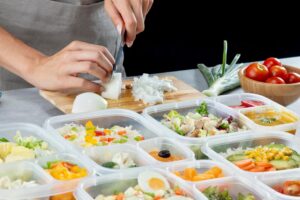
Essential Tools and Equipment
Having the right tools can make meal prep more efficient and enjoyable.
- Storage Containers:
- Glass containers for reheating.
- BPA-free plastic for lightweight storage.
- Stackable containers to save space.
- Kitchen Appliances:
- Slow cooker for easy one-pot meals.
- Instant pot for quick cooking.
- Air fryer for crispy, healthy dishes.
- Utensils and Accessories:
- Sharp knives for precise cutting.
- Measuring cups for accurate portions.
- Labeling tools to keep track of meal dates.
Types of Meal Prep Recipes
Whether you’re looking for quick breakfast ideas or hearty dinners, meal prep offers a variety of options.
1. Breakfast Options
Starting your day with a nutritious and energizing meal is crucial for maintaining focus and productivity. These meal prep breakfast recipes are easy to make, store well, and provide the nutrients needed to keep you fueled throughout the morning.
- Overnight oats with berries and chia seeds – A nutrient-dense, fiber-rich option that can be customized with your favorite toppings such as nuts, honey, or yogurt.
- Egg muffins packed with vegetables and cheese – A high-protein, low-carb breakfast that’s perfect for grab-and-go convenience.
- Smoothie packs for a nutritious on-the-go option – Pre-packaged frozen fruits and greens that can be blended in seconds for a quick energy boost.
- Protein pancakes with nut butter and banana – A satisfying, protein-rich breakfast that’s great for post-workout recovery and keeping hunger at bay.
2. Lunch Ideas: Meal Prep Recipes
Lunch should be both nourishing and satisfying to keep you energized and focused throughout the day. These meal prep lunch ideas are balanced, delicious, and perfect for taking to work or school.
- Mason jar salads with leafy greens and grilled chicken – A perfect blend of fresh vegetables, protein, and dressing stored in layers to keep ingredients crisp until ready to eat.
- Quinoa grain bowls with avocado and black beans – A plant-based powerhouse packed with fiber, protein, and healthy fats to keep you feeling full.
- Healthy wraps with lean protein and fresh veggies – Versatile and easy to make, wraps offer a perfect balance of protein, fiber, and carbs.
- Bento box-style meals with nuts, fruits, and sandwiches – A fun and portion-controlled way to include a variety of nutrients in one meal.
Meal prepping lunch ensures that you always have a healthy option available, preventing impulsive unhealthy choices during busy days.
3. Dinner Recipes
Dinner is often the most anticipated meal of the day, and meal prepping ensures that you have hearty, home-cooked dishes ready to enjoy without spending hours in the kitchen. These meal prep dinner recipes are delicious, filling, and easy to prepare in bulk.
- Sheet pan meals featuring chicken and roasted vegetables – A one-pan wonder that offers a balance of protein, fiber, and essential nutrients with minimal cleanup.
- Hearty casseroles made with whole grains – A comforting and nutritious option that can be prepped in advance and frozen for later use.
- Stir-fries with tofu and colorful bell peppers – A quick, veggie-packed meal that’s full of flavor and perfect for busy weeknights. Incorporate diverse flavors into your meal prep with these Easy Mediterranean Recipes: Healthy, Delicious, and Quick, offering a variety of healthy and quick options.
Tips for Successful Meal Prep Recipes
To make meal prep more effective and sustainable, keep these tips in mind:
- Maintain Food Safety:
- Store meals at appropriate temperatures.
- Reheat foods safely to prevent spoilage.
- Separate raw and cooked foods to avoid contamination.
- Keep Meals Fresh:
- Use airtight containers to maintain freshness.
- Add dressings right before serving salads.
- Rotate meals to consume older ones first.
- Stay Organized:
- Label containers with meal names and dates.
- Use a weekly planner to track meals.
- Create meal prep stations for efficiency.
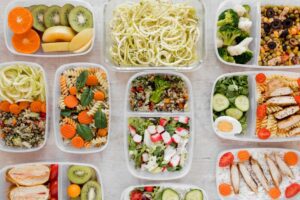
Common Challenges and Solutions
Meal prepping comes with its challenges, but these solutions can help:
- Overcoming Boredom:
- Rotate meal choices every week.
- Experiment with new spices and flavors.
- Try different cuisines and international dishes.
- Managing Time Constraints:
- Choose recipes that require minimal prep.
- Utilize kitchen gadgets for faster cooking.
- Batch cook staple ingredients to save time.
- Handling Dietary Restrictions:
- Find suitable ingredient substitutions.
- Research allergen-free recipes.
- Consult with a nutritionist for customized plans.
FAQs For Meal Prep Recipes
How many days in advance is it safe to meal prep?
When it comes to meal prepping, the general rule of thumb is to prepare meals 3 to 5 days in advance to ensure food safety and freshness. According to food safety guidelines, storing meals in airtight containers and keeping them refrigerated at 40°F (4°C) or below helps prevent bacterial growth. For longer storage, freezing your meals is an excellent option, allowing them to stay fresh for up to 3 months without losing flavor or texture.
To maximize freshness and taste, it’s best to separate wet and dry ingredients, such as storing dressings and sauces separately to avoid sogginess. Proper portioning and labeling with dates can help you track expiration and avoid food waste. If you’re planning a week-long meal prep, consider cooking proteins and grains in bulk while incorporating fresh vegetables later to maintain nutritional value.
How does meal prepping work?
Meal prepping involves planning, preparing, and portioning meals in advance to make healthy eating easier and more efficient. The process typically includes:
- Planning: Choose your meals for the week based on your dietary needs, calorie goals, and lifestyle.
- Shopping: Create a grocery list with all the necessary ingredients to avoid unnecessary purchases and food waste.
- Prepping: Cook meals in bulk, portion them into containers, and store them in the fridge or freezer.
- Storing: Use airtight, portion-controlled containers to keep meals fresh and ready to grab and go.
By following these steps, you save time, reduce the temptation to order unhealthy takeout, and ensure you’re consistently eating healthy, home-cooked meals. Meal prepping works well for weight loss, muscle gain, or simply maintaining a nutritious diet throughout the week.
What are the things to consider in preparing a meal?
When preparing a meal, it’s important to consider several factors to ensure your meals are balanced, delicious, and meet your goals. These include:
- Nutritional Balance:
- Ensure meals contain a mix of protein, healthy fats, and fiber-rich carbohydrates for sustained energy and satiety.
- Include vegetables to add vitamins and minerals while keeping meals low in calories.
- Portion Sizes:
- Proper portioning helps maintain calorie control and prevents overeating. Use tools like a food scale or measuring cups.
- Storage and Shelf Life:
- Store meals in airtight containers to maintain freshness and prevent spoilage.
- Choose storage options based on how long you plan to keep meals (fridge vs. freezer).
- Meal Variety:
- Rotating recipes and ingredients prevents meal fatigue and ensures a variety of nutrients in your diet.
- Try different cooking methods, such as roasting, steaming, or grilling, to keep meals interesting.
- Time Management:
- Choose simple recipes that align with your schedule and allow batch cooking to save time.
- Opt for meals that require minimal prep for busy days.
By considering these factors, you can make meal prepping efficient, nutritious, and enjoyable while maintaining consistency with your health goals.
How to be successful at meal prepping?
Success in meal prepping comes down to organization, consistency, and finding what works best for your lifestyle. Here are some key tips to ensure success:
- Start Simple and Build Gradually:
- Begin with prepping just a few meals per week and gradually increase as you become more comfortable.
- Stick to easy, familiar recipes to avoid feeling overwhelmed.
- Plan and Schedule Ahead:
- Set aside dedicated time each week to plan your meals, grocery shop, and cook.
- Use meal planning apps or calendars to stay on track and organized.
- Invest in Quality Containers:
- Choose BPA-free plastic or glass containers that are microwave and freezer-safe for convenience.
- Portioning meals into separate containers helps with grab-and-go efficiency.
- Batch Cooking and Multi-Tasking:
- Prepare ingredients that can be used in multiple meals, such as grilled chicken for salads and wraps.
- Cook grains, proteins, and vegetables in bulk to save time during busy weekdays.
- Stay Flexible and Adaptable:
- If your schedule changes, freeze meals to avoid waste and adjust portion sizes based on hunger levels.
- Have a backup plan for busy days, like pre-made smoothie packs or frozen stir-fry ingredients.
By following these strategies, you can make meal prepping a sustainable habit that supports your health, saves time, and helps you stay on budget.
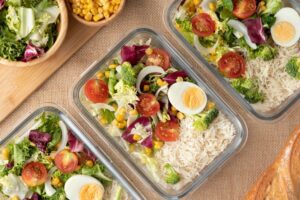
Conclusion
Meal prepping is a powerful way to take control of your nutrition and simplify your daily routine. Whether you’re a beginner or a seasoned pro, planning your meals in advance can help you eat healthier, save money, and reduce stress. By dedicating a few hours each week to preparing nutritious meals, you eliminate the guesswork from daily eating and make it easier to stick to your dietary goals.
With the right planning and strategies, meal prep recipes can help you achieve a well-balanced diet, ensuring you get the necessary nutrients without relying on processed foods or last-minute unhealthy takeout options. The benefits go beyond convenience—meal prepping fosters mindful eating habits, encourages portion control, and provides structure to your day-to-day routine. It empowers you to stay consistent with your health goals while freeing up valuable time for other priorities.
From budget-friendly meals to gourmet-inspired dishes, meal prepping offers endless possibilities to customize your weekly menu according to your tastes and nutritional needs. Whether you’re looking to lose weight, build muscle, or simply enjoy delicious homemade meals, meal prepping allows you to be in charge of your food choices with confidence and ease.
So why wait? Start incorporating these meal prep recipes into your routine today and experience the transformation of a well-organized, healthier, and stress-free lifestyle.
